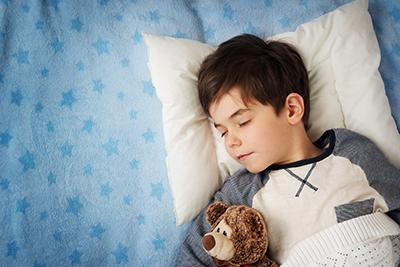
Is your child having trouble getting to sleep or staying asleep? Occasional sleeplessness is usually nothing to worry about, but if your child is suffering from prolonged lack of sleep, it can have harmful physical and mental effects. Your pediatrician can help.
What You Need to Know About Helping Your Child Sleep Better
Your child needs to sleep well because sleeping helps to:
- Recharge your child’s body
- Boost your child’s immune system
- Lower your child’s risk of illness and infection
- Keep your child from overeating
- Manage your child’s stress, behavior, and emotions
- Enhance your child’s brain health
- Increase your child’s ability to concentrate and focus
- Increase your child’s ability to problem solve
So, how much sleep does your child need? According to the American Academy of Sleep Medicine, these are the recommendations of hours of sleep needed within a 24-hour period:
- Babies 4 to 12 months - 12 to 16 hours, including naps
- Toddlers 12 to 24 months - 11 to 14 hours, including naps
- Children 3 to 5 years - 10 to 13 hours, which may include a nap
- Children 6 to 12 years - 9 to 12 hours
- Children 13 to 18 years - 8 to 10 hours
To help your child sleep better, you should:
- Keep televisions, computer monitors, phones, and other screens out of your child’s bedroom
- Set a bedtime for your child and stick to it
- Limit your child’s caffeine intake including sodas and chocolate
- Limit your child's sugar intake including candy, soda, and desserts
- Avoid having your child eat a large meal before going to bed
- Keep your child’s bedroom calming, as dark as possible, and as quiet as possible
Developing a ritual is also helpful to induce sleep. The ritual will signal to your child that it’s time for sleep. Reading to your child, or having your child read before bed, or take a warm bath are excellent choices for better sleep.
Want To Know More?
To find out more tips on how to help your child sleep better, talk with an expert. Call your pediatrician today.








